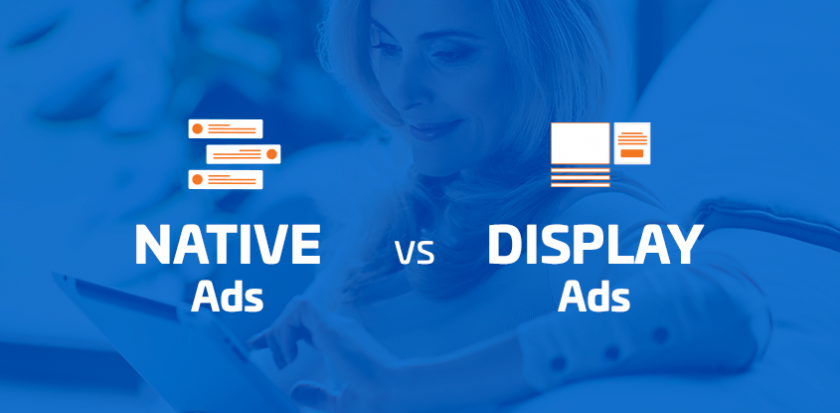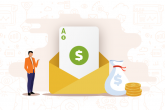If you’re a publisher, you can monetize your email newsletters from the first day of publication by placing native ads or display ads inside your content. Both display and native ads are two different types of effective, cutting-edge ad strategy—programmatic advertising.
Programmatic Advertising: On-Target Marketing Magic
Through the magic of AI-powered algorithms, as HubSpot’s Kayla Carmichael points out, advertisers can choose to target online ads to customers likely to buy their products and services. Furthermore, these algorithms sort through user behavior, demographics, preferences, and likes to find likely customers. Ads that appeal to those customers then appear as they browse online, read emails, or read the latest stories on social media.
Similarly, when you get spring fever and start browsing through convertible sports cars on online car sales platforms. Then, when you finally get back to doing work, those darn cars pop up, tempting you to blow off the rest of the day and go car shopping. Again—programmatic advertising’s magic.
Programmatic advertising works because placement comes straight from potential customer data. It’s great for the consumer because they only see products they’ll most likely love, and it’s a good bet for advertisers because those people who see their ads are already primed to buy.
If you’re an email newsletter publisher, you’re the go-between that makes this customer-advertiser relationship happen. On the other hand, for publishers, it’s absolutely free.
That benefit means that you’ll be earning passive income with every newsletter you publish. For advertisers, it’s a win-win situation. Only people whose interests closely align with their products will see their ads, resulting in a higher return on their advertising investment.
There are several types of programmatic advertising, including two popular forms that you can use to monetize your newsletters: display and native ads.
Display Ads: Bold, Bright, and Salesy
Display ads usually appear on a sidebar in your email newsletter, or alternately, on the header or footer. As such, they’re like neon signs, as opposed to ambient lighting.
They’re clearly ads—and usually are bright-colored, brand-forward, and attention-getting. The only problem with display ads is that people usually ignore them—unless they’re actively in the market for the product or service.
Unlike display ads that pop up while you’re browsing, newsletter display ads aren’t time-targeted. For instance, let’s say that you’re a business owner browsing the Internet during your lunch hour. If you’re in the market for let’s say, a sales software solution, you’re likely to click on a display ad promising 20% off the advertiser’s software.

However, when you come home at night and browse the web, the last thing you want to see—if you’re like most people—is an ad that reminds you of your unresolved software needs. What does attract you, though, are those “sponsored stories” that have compelling headlines and feature topics that interest you.
With other, more appealing options out there on the digital advertising space, it is no wonder that banner ads’ clickthrough rates are dismal—less than 0.1%–as content marketing expert Michael Brenner points out in a 2018 post. In fact, he says, 60% of clicks on display ads are accidental.
Not the brightest bulb in an advertiser’s box. Certainly not a good bet to help newsletter publishers monetize their content.
There is, however, a type of advertising perfect for both advertisers and newsletter publishers: native ads. Like their upwardly mobile cousin, content marketing, they’re highly effective and can help get newsletters off the ground successfully without a dime invested.
Native Ads: Storylines That Make You Think
Those sponsored stories whose headlines beckon you to click are native ads. In an email newsletter, they are even more compelling since their topics appeal to your readers.
Just like native ads online, they appear within the body of your newsletter, as do links to your other blog posts that complement your newsletter article’s topic.
For advertisers, as Carmichael points out, they’re a gold mine since they catch the attention of a virtually captive audience—those who clicked on your subject line to read your newsletter. They’re also captivating, with headlines that promise more informative content than mere banner ads.
For newsletter publishers, they’re instant moneymakers. Since the ads’ headlines blend in seamlessly with the newsletter’s content, they don’t turn off readers. In fact, since the products and services they advertise interest each recipient, your readers will more likely thank you for introducing them to these products.
Since native advertising reads more as an “advertorial”—an informative piece that answers potential customers’ questions and helps them solve their problems, it matches the quality of publishers’ newsletter content, Content Marketing Institute’s Robert Rose points out. Provided that the newsletter’s content is equally informative, native advertising is especially well-suited to a newsletter format.
Email Newsletters Provide Long-Term Gains as Well
Not only can companies monetize their email newsletters through native advertising, but the actual content they provide their readers with has proven to be way more effective than social media, as a McKinsey study pointed out. Besides, that startling number rests upon email marketing’s ability to provide your customers with relevant, valuable information that helps them solve real-world problems.
As newsletter publishers create this informative content consistently, they build authority in their respective fields, building trust with every article they publish. In the long run, companies that embrace content marketing attract and retain more customers.
Even better, the more impressive the quality of their content and the more helpful it is to the company’s target customers, the more their customers (and even industry movers and shakers) look at them as thought leaders in their field.
Native Advertising Gives Companies a Way to Fund Content Marketing
Old habits die hard, especially in legacy companies. However, tied into traditional advertising, many companies put the lion’s share of their marketing budget into those ads, as opposed to content marketing through newsletters and blogs.

Forward-thinking marketing teams in such companies must find a way to sell the C-suite by putting out a newsletter to build brand authority and trust. Moreover, with email monetization possible through native advertising, marketers won’t have to dig deep into the budget to publish a newsletter.
Once the newsletter builds authority and the data pours in to prove their newsletter’s effectiveness, marketers can leverage that success and squeeze a lot more out of their budget to improve their publication. When a company can monetize emails, it can invest more in the content that it publishes in each newsletter.
That kind of email monetization is a win on all fronts: for advertisers, for newsletter publishers, and most importantly, for a company’s customers.
To learn how your company can leverage the power of content marketing through email monetization, get in touch with the inboxAds team today.






